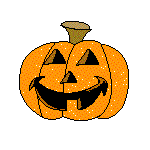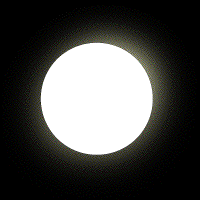Church of God, Sabbath Day
Springdale, Arkansas
October, 1998


Do you know that Halloween was introduced into the professing Christian world centuries after the death of the apostles, yet it was celebrated by the pagans centuries before the New Testament Church was founded!
How did Halloween come to America? Here is the intriguing answer from history: "The American celebration rests upon Scottish and Irish folk customs WHICH CAN BE TRACED IN DIRECT LINE FROM PRE-CHRISTIAN TIMES" ...from paganism! "Although Halloween has become a night of rollicking fun, superstitious spells, and eerie games which people take only half seriously, its beginnings were quite otherwise. The earliest Halloween celebrations were held" ...not by the inspired early church, but ..."by the Druids in honor of Samhain, Lord of the Dead, whose festival fell on November 1." (From HALLOWEEN THROUGH TWENTY CENTURIES, by Ralph Linton, Page 4.)
Far from being Christian, this festival is an old pagan holiday, masquerading as though it were one of the customs of the church. And yet professing Christians allow their children to get into the spirit of this pagan custom!
The Encyclopedia Americana states about Halloween that it "is clearly a relic of pagan times."
Now notice what the authoritative Encyclopedia Britannica says about Halloween: "It long antedates Christianity. The two chief characteristics of ancient Halloween were the lighting of bonfires and the belief that this is the one night in the year during which ghosts and witches are most likely to wander about. History shows that the main celebrations of Halloween were purely Druidical" ...from the pagan Druids of Northwest Europe ..."and this is further proved by the fact that in parts of Ireland October 31 is still known as OIDHCH SHAMHNA, 'Vigil of Saman.'" Saman or Samhain was the pagan lord of the dead among the Druids.
So Halloween was celebrated among the pagans long before Jesus was born in Bethlehem. This pagan holiday, however, was not celebrated alone among the Druids. It was also a Roman festival! The Britannica continues: "On the Druidic ceremonies were grafted some of the characteristics of the Roman festival in honour of Pomona held about November 1, in which nuts and apples, representing the winter store of fruits, played an important part."
Notice the widespread pagan custom to celebrate this season of the year.
Now comes the shocking truth from history as to why this holiday was celebrated! Here are the plain facts as written in THE BOOK OF HALLOWEEN, on page 10, by Ruth Kelley: The pagan Druid priests "taught the immortality of the soul, that it passed from one body to another at death... They believed that on the last night of the old year (October 31) the lord of death gathered together the souls of all those who had died in the passing year and had been condemned to live in the bodies of animals, to decree what forms they should inhabit for the next twelve months. He could be coaxed to give lighter sentence by girls and prayers."
"On the New Year, their sins being expiated, they were released to go to the Druid Heaven." (From Halloween Through Twenty Centuries, p.5)
Halloween was celebrated to preserve in the minds of the people the false doctrine of the immortality of the soul ...that the dead are not really dead. Almost all heathen nations had days in honor of the dead ...days originally instituted to commemorate the death of Nimrod (Genesis 10:8-10) whom Semiramis, his wife, said was still alive.
Now let us understand the meaning of the word "Halloween." It is the eve of All hallows or Hallowmas or All Saints' Day ...and as such it is one of the most solemn festivals of the (Catholic) church." (From page 3 of Linton's Halloween Through Twenty Centuries.)
Halloween is the evening of All hallows or All Saints' Day, which falls on November 1. Since in ancient times, the days were customarily reckoned as beginning at sunset, Halloween was merely the evening celebration in anticipation of the great day of November 1, dedicated to the lord of the dead!
You will remember that shortly before his crucifixion, Jesus was questioned by the Sadducees about the resurrection. In order to prove that there would be a resurrection from the dead, Jesus told them: "But as touching the resurrection of the dead, have ye not read that which was spoken to you by God, saying, I am the God of Abraham, and the God of Isaac, and the God of Jacob? God is not the God of the dead, but of the living" (Mat. 22:31-32).
Notice the meaning of Jesus' answer. Since the patriarchs are DEAD, and since God is ONLY the God of the living ...because the DEAD serve not the Lord (Psalms 6:5; l l5:17) ...then there must be a resurrection of the DEAD in order that they might live again and that God might be their God.
To make the resurrection possible, "Christ both died, and rose, and revived, that he might be the Lord both of the dead and living" (Rom. 14:9). Observe that Jesus became the lord or master of the dead because through his resurrection He gained the keys of the grave and death (Rev. 1:18) and will resurrect the dead so they may live to serve him. But from whom did Jesus gain these keys? Who had prior mastery over the dead?
Paul, in the book of Hebrews, speaks of "him that had the power of death, that is the devil" (Heb. 2:14). So the devil, Satan, was lord or master of the dead!
Among the heathen Druids, Samhain or Saman, the lord of the dead, was Satan! To this day people still celebrate with frolicking fun a wild night in honor of the devil! Paul says that the heathen who thought they were worshipping the true God were actually serving demons (Gal. 4:8). Young people today who set fires on Halloween are not serving God.
But if Halloween is merely the evening in honor of the devil, how did the day ...called All Hallows' or All Saints' Day ...come to be celebrated in the professing Christian Church?
The first of November, celebrated among the pagans in honor of Samhain ...Satan ...is today celebrated in hundreds of churches "to honor all the saints, known and unknown, and according to (pope) Urban IV, to supply any deficiencies in the faithful's celebration of saints' feasts during the year" (Catholic Encyclopedia).
How did the veneration of saints, supposedly alive in heaven, come to be celebrated on a day in honor of the devil?
. . . The Church, feeling that every martyr should be venerated, appointed a common day for all."
Notice, what once was a memorial for each martyr on different days became a general day in honor of the dead who were believed to be alive in heaven. "Gregory III (731-741) consecrated a chapel in the basilica of St. Peter to all the saints and fixed the anniversary on November I . . . Gregory IV (827-844) extended the celebration on I November to the entire Church. The vigil (Halloween) seems to have been held as early as the feast itself."
Notice that the celebration of Halloween, the eve of the day, is as old as the celebration of All Saints' Day in the Catholic Church. On page 6 of his book, Ralph Linton says of this holiday, "All Saints' Day was introduced into the church calendar because the year was not long enough to make it possible to dedicate a special day for each spirit of the Catholic Church . . . That the day chosen was one already associated in the popular mind with a thronging of spirits of the dead which was quite in line with church policy of incorporating harmless pagan folk ideas."
Protestants continued the celebration of Halloween partly "since it was on this day, in 1517, that Martin Luther posted his epoch making ninety five theses on the door of the castle church at Wittenberg" which started the Protestant Reformation. "He chose Halloween night because he knew that the townsfolk.., would be coming to the church that night." (Halloween, pp 9-10.)
Do you know where the common Halloween prank of children knocking on doors and shouting "trick or treat" originated?
Linton says: "... certainly it comes from pagan times." In Ireland up to the turn of the century, it was customary to have a procession "led by a man in a white robe wearing a horse head mask." ("The horse was sacred to the Sun God," says Linton, "which indicated that this custom was a survival of a Druid rite.") The procession levied a contribution from the farmers in the perverted name of what probably was an old Druid god. Unless the procession was "treated liberally with gifts, the farmers were "tricked" with the threat of a curse that would ruin next year's crops!
This traditional custom of having processions at Halloween is further derived from another unusual practice. Wealthy churches during the Middle Ages, copying the ancient Greek and Roman religious processions, paraded the relics of patron saints. The poorer parishes could not afford to buy relics so they used caricatures of their patron saints. "Those who were not playing the parts of the holy ones also wanted to get into the procession and so dressed up as angels or devils. The All hallows procession around the churchyard eventually became a gay and motley parade. (From page 103 of Halloween Through Twenty Centuries.)
The present day "trick or treat" is but a continuation of these degenerate and absurd customs which came out of paganism and have been labeled with Christian names.
Is it any wonder that children and adults wantonly damage private property ...on a day originally dedicated to Satan, the Destroyer?
